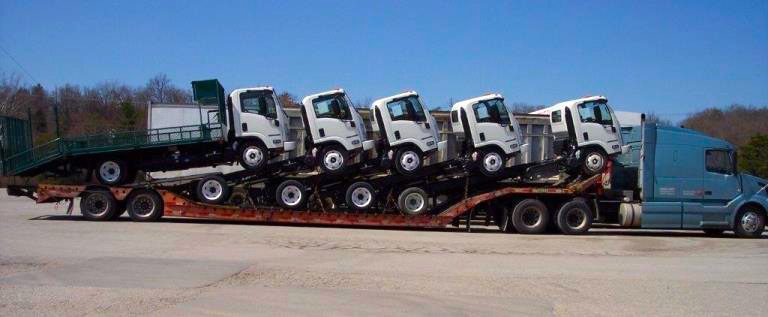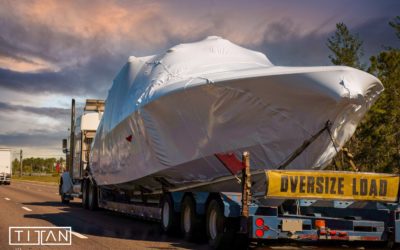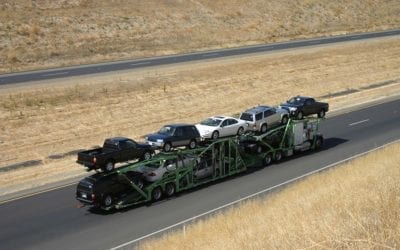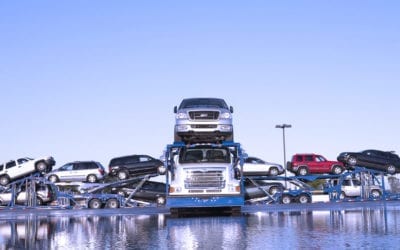Heavy Duty Truck Stacking Transport
Truck transportation is quite popular today, as evidenced by the daily number of trucks on the nation’s highways. Heavy-duty transport, especially truck stacking transport, is essential when moving the heavy products that most people rely on extensively.
Heavy-duty transport continues to grow with the global economy. Supply chain issues dating back to Covid-19 continue to wreak havoc as the demand for new products increases in the growing economy. Labor shortages in the trucking industry, including drivers, place more pressure on high-end transporting services.
To add to an already troubling situation, the U.S. Department of Transportation forecasts that the country’s freight volume will increase to 29 billion tons by 2040, an alarming statistic when considering highway congestion or the environmental impact. Nonetheless, the trucking industry holds the key to consumers gaining access to goods they want and need moving forward.
A Brief History of Heavy-Duty Trucks
Heavy-duty trucks arrived on the scene early in the 20th century during World War I with the advent of the gasoline-powered engine. They were pivotal in moving troops, munitions, and supplies during the fighting and played an essential role in the post-war economy. In the 1920s, the demand for heavy-duty trucks increased, and more than 300 manufacturers produced them.
However, truck manufacturing faded during the Great Depression of the 1930s, and many of those companies closed their doors permanently as the world’s economy collapsed. Only about a dozen heavy-duty truck manufacturers exist today, with Kenworth, Peterbilt, Mack, and the Swedish Volvo among the most recognizable brand names.
Different Truck Types Fill Various Needs
Trucks are identified by the loads they carry. Pickup trucks are designed for lighter loads, such as lawn equipment or mulch, while semi-trucks can handle cargo weighing more than they do. These big rigs are classified according to their weight-handling capacity or Gross-Vehicle Weight Rating (GVWR), as opposed to passenger cars categorized by size and weight.
Trucks are typically distinguished as light-duty, medium-duty, and heavy-duty, depending on their GVWR. Eight classes, based on GVWR, comprise the list of truck classifications:
- Class 1: Up to 6,000 pounds (Example: Ford Ranger)
- Class 2A: 6,001 to 8,500 lbs. (Ex. Ford F-150)
- Class 2B: 8,501 to 10,000 lbs. (Ex. Chevy Silverado 2500)
- Class 3: 10,001 to 14,000 lbs. (Ex. Ram 3500)
- Class 4: 14,001 to 16,000 lbs. (Ex. Ford F-450)
- Class 5: 16,001 to 19,500 lbs. (Ex. Ford F-550)
- Class 6: 19,501 to 26,000 lbs. (Ex. Ford F-650)
- Class 7: 26,001 to 33,000 lbs. (Ex. Ford F-750)
- Class 8: Over 33,000 lbs. (Tractor-trailers)
Classes 1-3 are considered light-duty trucks. Classes 4-6 are medium-duty. And 7-8 fall into the heavy-duty category.
Advantages of the Heavy-Duty Truck
Heavy-duty trucks comprise steel, stainless steel, and aluminum, providing them with the strength and durability required for heavy towing and hauling. Steel suspension components, multiple axles, turbo exhaust stacks, unique steering systems, and robust engines work together to enable heavy-duty rigs to haul oversized, heavy loads for long distances.
Whether a food truck delivering meals to a local office or a big-rig tractor-trailer hauling heavy construction materials and oversized equipment to and from a construction site, the heavy-duty semi-trucks are the go-to for completing tough jobs.
Is Gas or Diesel Better for Heavy-Duty Trucks?
Most heavy-duty trucks are available in gas or diesel fuel, and each type has pros and cons. Diesel-fueled trucks typically offer more torque, more towing power, higher fuel mileage, and longer-lasting performance, but gas trucks also have their advantages:
More horsepower and better acceleration: Although diesel engines have plenty of torque to help them get up to a high speed with a heavy load, gas trucks are better at passing other vehicles on the highway.
Easier maintenance: Service technicians are generally more familiar with gas engines, resulting in lower engine repair costs, parts replacements, and tune-ups. However, an aging gas engine often amasses more mechanical problems than a heavier diesel.
Heavier payloads: The lighter gas-powered truck can handle a more significant load because diesel engines are heavier than their gas counterparts.
Carrying More Weight Provides Benefits
The more pallets you can safely load onto your heavy-duty truck, the fewer trips you’ll have to take. You’ll save money on fuel costs, driver expenses, and wear-and-tear on your vehicle. With fewer trucks on the road, traffic accidents should decrease, the trucker shortage could be mitigated, and passenger vehicles would be safer. And if the environment’s health is essential to you (and it should be!), fewer trucks on the highway can reduce the emission of harmful gases into the ecosystem.
Of course, while commendable, the goal of having more weight on fewer trucks is more challenging than it would appear on the surface. Logistics companies already adhere to the concept, but it’s hard to maintain it in the harsh light of reality. Less than truckload (LTL) shipping, deadheading, and delivery constraints make optimal-weight shipping difficult.
The Importance of Preventive Maintenance
Preventive maintenance determines the lifespan of your heavy-duty truck, especially if you intend to load it to the maximum capacity for fewer trips. By performing this type of maintenance on your truck, you can reduce the amount of downtime, keeping it on the road and where it can help you make money.
The following are essential to the health of your heavy-duty truck:
Check and change the fluid regularly
The most critical fluids include engine oil, coolant, brake fluid, transmission fluids, and power steering. Taking the time to perform these simple tasks can add life to your truck and help prevent an expensive breakdown. Follow the manufacturer’s guidelines on changing fluids.
Ensure the air filter is clean
Service the engine air filter regularly since a clean air filter helps to reduce fuel consumption, especially on heavy-duty trucks.
Check the tires’ quality and pressures
The tire pressure and condition of each tire on a heavy-duty truck contribute to their long life and optimum fuel economy. Tires should be at the manufacturer’s recommended inflation levels and have deep tread patterns. Uneven tire wear indicates alignment, suspension, and improper inflation issues.
Ensure correct electrical system connections
Commercial vehicles require electrical systems to work at peak levels because of high-tech systems like onboard computers, collision avoidance systems, and ABS brakes. Inspect those connections and cables for corrosion and wear, and clean and replace them when necessary.
What is Truck Stacking?
What do we mean when we talk about truck stacking?
In 2020, Volvo, the Swedish car and truck manufacturer, produced a TV commercial in which it stacked four of its newest semi-trucks—the FH, FH16, FM, and FMX—on top of one another to form a big rig tower. The stack is just over 49 feet tall and weighs around 116,000 pounds. Their updated FMX truck provides the structure’s base with its dual front axles and dynamic steering system.
Although this is truck stacking in its most literal sense, it’s not what Titan Worldwide means when it calls attention to its truck-stacking services. Instead, it refers to a specialized service where commercial vehicles are stacked to reduce their overall height and length (as opposed to the Volvo method) to move them to a single destination.
Our stacking services aim to save money on delivery costs, including fuel and driver costs, and significant time on the overall transporting time. And we have various trailers—removable goosenecks (RGN), flatbeds, and step-decks—designed to ship different sizes of commercial vehicles.
Oversize and Super Loads?
Oversize load trucking requires a reputable and experienced trucking company to handle the unique challenges these loads present safely. Titan Worldwide is the industry leader in heavy haul trucking, providing multiple services for over-dimensional freight. Whether it’s industrial machinery, construction equipment, or other oversized cargo, our trucking company offers the expertise and resources to get your load to its destination safely and on time.
Our team of skilled professionals is trained in the complex logistics of oversized loads, ensuring that your cargo complies with all the legal regulations and safety standards. And all the services we provide for oversized loads pertain to super loads.
Super loads are shipments exceeding the standard legal size and weight limits for transportation. These loads are distinguished by being oversized, extremely heavy, or having unique characteristics rendering them impossible to divide into smaller parts. Super loads include sizeable industrial machinery, prefabricated structures, wind turbine components, and oversized equipment.
Specialized Trailers for Unique Loads
As with the stacking of heavy-duty commercial vehicles, transporting oversize and super loads requires specialized trailers to accommodate these shipments’ unique dimensions and weight. At Titan Worldwide, we have a fleet of state-of-the-art trailers equipped with advanced features to ensure your super load’s safe and secure transportation. Our trailers are engineered explicitly with reinforced frames, adjustable axles, and hydraulic systems to handle the weight distribution and provide stability during transit. These specialized trailers are meticulously maintained and regularly inspected to guarantee optimal performance and safety.
Don’t Settle for Less
If you need a heavy-duty vehicle to meet your shipping needs, Titan Worldwide has the solution. Their truck stacking experts offer an efficient, reliable heavy-haul service in a cost-effective third-party logistics package to solve all your transportation needs.
They provide heavy-haul transport services for construction and farming equipment weighing 30,000 to over 80,000 pounds and deliver to local or global destinations. Their truck stacking transport specialists focus on saving deck space when transporting pallets and containers of large quantities of products. And their team of project logistics professionals uses internal proprietary execution models so your project stays within budget.
You can rest easy knowing that the Titan worldwide specialists will create transportation efficiencies and a comprehensive risk assessment to diminish the chance of uncontrollable costs. When your project requires logistics services, choose a team of pros with the expertise to guide and support you throughout the process. Our logistical planning services are second to none, and our experienced team will deliver tracking updates on each aspect of your project.
Don’t settle for less than the best!




